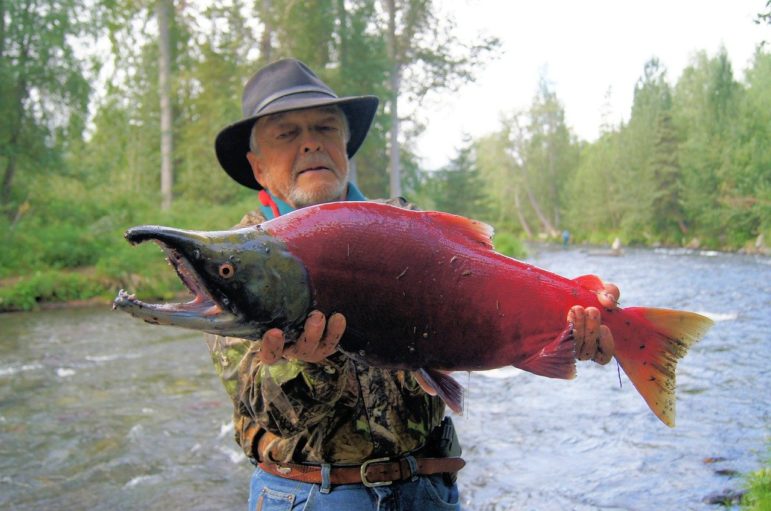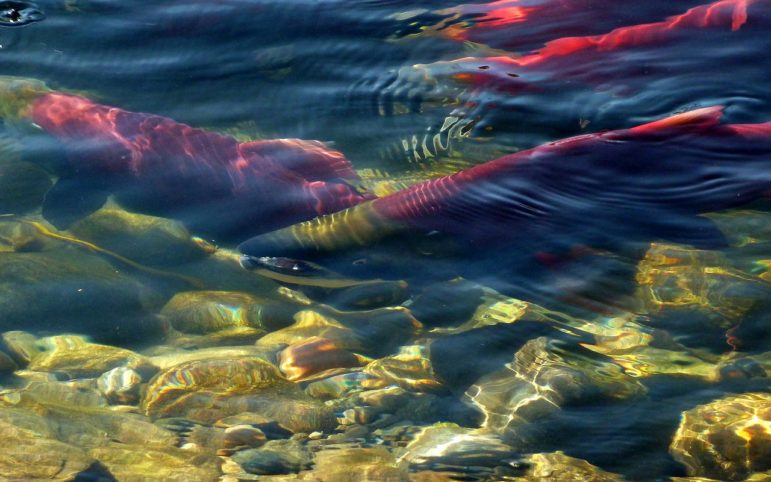
One of the long-alleged hallmarks of the Pagan movement has been our supposedly unified belief in the sanctity of nature. How can one believe in and have a reverence for Gaia, after all, if one doesn’t inherently value all that she is and embodies? But those who have been involved in the spiritual movement in its many flavors know that this is a gross oversimplification of a big-tent collection of groups, individuals, and philosophies that rarely see eye to eye on much of anything, let alone the role of nature in spirituality.
While there may be some Witches, reconstructionists, Heathens, Druids and even some ceremonialists who do hold reverence for nature — maybe even a narrow majority — it can be surprising to the novice to discover how small a part of the puzzle it actually plays in our varied practices. Especially since, and maybe undeservedly so, the reputation that still resonates in the over-culture from the heady days of the 70s and 80s carries with it images of naked folks frolicking in fields, dancing merrily in service to the Great Goddess.
As many know, that mythology simply doesn’t broadly apply today, if it ever did. But maybe it needs a fresh look, with the sensibility that the 2020s can provide. We could change our values from less an off-off-Broadway rendition of Hair to more of a movement elevating the value of how and what we feed our bodies, the impacts and repercussions of the decisions we make about our food, and a greater embracing of focused attention to environmental concerns.
Simply put, maybe it’s time we re-center Mother Earth and start being more public and more vocal about our support for a sustainable – and hell, even rewilded – world. That’s what I want for my kid.
A pocketful of salmon
Salmon are a truly beautiful and important species for humans — we don’t need the wisdom of Fionn mac Cumhaill sticking his Salmon of Knowledge-burned thumb in his mouth to tell us that. They spend a lifetime in the ocean and bookend it with birth and death in inland freshwater lakes and streams. They are speckled, silver, pink, or red; they’re fast and tenacious swimmers so determined to carry on their species that they literally die to make it happen. They go through radical transformations in body shape and size that are reminiscent of the metamorphosis that other animals experience. Even the smallest species return to fresh water at almost two feet in length. The largest, the chinook, grow to almost five feet long.

A man holds a sockeye salmon in the middle of a river [Pixabay]
We don’t often hear them associated with the term “diminutive.” And yet these powerful predators and prey, important to orca, bears, people, rivers, and even forests — where their carcasses rejuvenate and nourish the trees, understory, and mycelial network — are, increasingly, decreasing in size.
The “why” of that is complicated, and scientists are studying the phenomenon. It has led some retailers recently to reclassify how they measure out and sell slabs and cuts, including Whole Foods Market, according to an article by the Seattle Times. Grocers aren’t the only ones experiencing the pinch: chef Craig Breeden of the Seattle landmark restaurant Ivar’s has begun routinely sending back small fish that he won’t or can’t sell in his restaurant.
“In the last eight to 10 years, the salmon sizes have started to get smaller and smaller,” Breeden said. He called the skimpy fillet sizes irritating.
The issue goes deeper than a frustrated chef or a retailer clambering for other options. These are wild stock we’re talking about, fisheries that have evolved over millennia or longer, but are now being stressed on multiple fronts.
Climate change, predation, limited food resources, mining, and more have led the individual body size of many salmon to dramatically shrink over the last 60 years, according to a journal article published in Nature. Healthy salmon have a direct positive correlation to the health of the surrounding environment – in short, small salmon means sick salmon, and sick salmon means a sick environment.
Oddly, this is one of those rare occurrences where the overall abundance of the species might not be the problem. In fact, there was a record-setting number of Pacific-dwelling salmon species found in population studies in 2018. Generally, we’re used to seeing environmental change or injury cause reduction of species. But thanks to fish hatcheries, the population has remained relatively high. So why the skimpy fish?
According to Nature:
Both environmental change and increased competition at sea with highly abundant wild and hatchery salmon could result in body size declines through reductions in the availability or quality of food resources. Climate warming might also reduce ectotherm body size by increasing metabolic and developmental rates. Finally, all of these environmental factors could result in increased natural mortality in the ocean, leading to reduced average age-at-return to freshwater.
Increasingly, it seems, climate change and other environmental factors are making fish return to their natal rivers earlier and earlier.
Treat your friends well
Pacific salmon have been actively fished for at least 3600 years, according to an article by Deidre Cullon published in the journal BC Studies, and may have begun as far back as 7000 years. The First Nations people who occupy the land where these fisheries began, among them the Kwakwaka’wakw, are part of what has been dubbed the Northwest Coast Cultural Complex, where elaborate trade, cultural, linguistic, and spiritual interactions occurred between large numbers of people in well-organized villages and tribes. The basis of this civilization relied on reliable stores of salmon.

Sockeye salmon congregating below the surface of a river [Pixabay]
Naturally, the salmon became incorporated into the myth and lore of the Kwakwaka’wakw, who viewed all animals, including salmon, as fellow people who wore masks — an animistic view that has been identified by some anthropologists with the phrase “other than human persons.” That concept has been picked up in some Pagan circles that have adapted animism into their practices as well.
As long as they are treated respectfully, salmon will choose to continue to provide their human counterparts with wealth, health, and well-being. This requires that they receive special treatment in the form of prayers, proper handling, reverence, respect for their remains, and the ability to think like them. If salmon are neglected or disrespected, they may choose to punish their human-person counterparts by not returning the following year. These animistic beliefs resulted in the care and maintenance of the resource and a sensitivity to salmon ecology that resulted in effective stewardship techniques and an abundance of fish.
And that is exactly what the Kwakwaka’wakw have done throughout their relationship with this sacred animal, this other than human person. They treat it with respect and, at least until recently, were rewarded for their deference.
How does a person treat salmon with respect, especially if they are landlocked? Maybe we eat them, maybe not. Or maybe we are vegetarian or vegan and think we are doing pretty well. My first thought: we need to treat ourselves well and with respect, and all action will flow from there. I’m not necessarily saying consumer choices will change the world, though it’s possible, but rather a kinship with animals, plants, rivers, and the earth we stand on will alter our reality. And the more human-people think differently, the faster we can get on with the business of fixing the problems human-people have created.
In other words, out of respect for our friends, we need to start doing more for them and the environment we all share.
Since my focus is on the environment as well as food, I want to be clear that I am not dogmatic about food choices. If someone wants to eat salmon, they should do so: it’s healthy and delicious, and, to be honest, one of my favorite foods. But we must empower ourselves with knowledge, which is achingly easy to find in our digital era, and learn to select for those options that treat these fish respectfully and that resonate well within the vast web of life.
To pick up a quote from Tim Ingold that Cullon shared in her article, we need to begin to see that “things are in life rather than that life is in things.”
THE WILD HUNT ALWAYS WELCOMES GUEST SUBMISSIONS. PLEASE SEND PITCHES TO ERIC@WILDHUNT.ORG.
THE VIEWS AND OPINIONS EXPRESSED BY OUR DIVERSE PANEL OF COLUMNISTS AND GUEST WRITERS REPRESENT THE MANY DIVERGING PERSPECTIVES HELD WITHIN THE GLOBAL PAGAN, HEATHEN AND POLYTHEIST COMMUNITIES, BUT DO NOT NECESSARILY REFLECT THE VIEWS OF THE WILD HUNT INC. OR ITS MANAGEMENT.
The Wild Hunt is not responsible for links to external content.
To join a conversation on this post:
Visit our The Wild Hunt subreddit! Point your favorite browser to https://www.reddit.com/r/The_Wild_Hunt_News/, then click “JOIN”. Make sure to click the bell, too, to be notified of new articles posted to our subreddit.